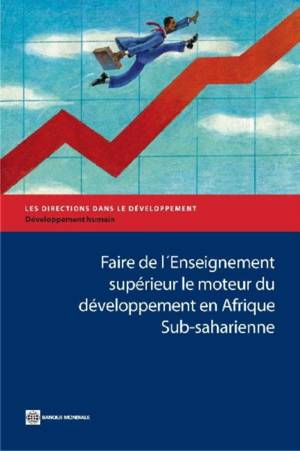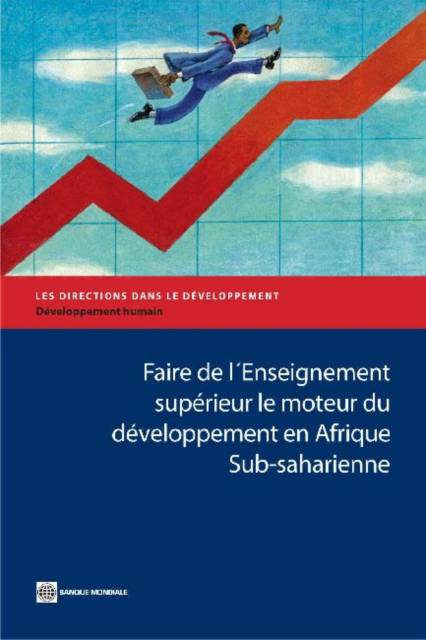
- Retrait gratuit dans votre magasin Club
- 7.000.000 titres dans notre catalogue
- Payer en toute sécurité
- Toujours un magasin près de chez vous
- Retrait gratuit dans votre magasin Club
- 7.000.0000 titres dans notre catalogue
- Payer en toute sécurité
- Toujours un magasin près de chez vous
Description
The revival of economic growth across Sub-Saharan Africa (SSA) since the beginning of the millennium is a heartening development. Sustaining it over the indefinite future is not only a necessity, but also a challenge of the first order. The key to economic success in a globalized world lies increasingly in how effectively a country can assimilate the available knowledge and build comparative advantage in selected areas with good growth prospects. Increasing the relevance of tertiary education and research in Sub-Saharan Africa will enable the region to increase its comparative advantage by pushing the frontiers of technology through innovation, encourage the diversification of products and services, and maximize returns from capital assets through more efficient allocation and management. African countries have gone far in achieving high levels of literacy and raising primary enrollments. This progress is providing a foundation for future development. Now it is necessary to move quickly to acquire the higher-order skills and expertise that will allow African countries to add value in existing economic activities and enter new industries and services. Accelerating Catch-up compellingly spells out the case for more knowledge-intensive growth and demands increasing attention to secondary and, most importantly, post-secondary education. It demonstrates why tertiary education systems in Sub-Saharan Africa must become better aligned with national economic development and poverty reduction strategies, and has identified the benefits likely to be associated with such a shift in perspective. It will be of great interest to international organizations, governments, research institutions, and universities throughout the region.
Spécifications
Parties prenantes
- Auteur(s) :
- Editeur:
Contenu
- Nombre de pages :
- 188
- Langue:
- Français
- Collection :
Caractéristiques
- EAN:
- 9780821379264
- Date de parution :
- 23-04-09
- Format:
- Livre broché
- Format numérique:
- Trade paperback (VS)
- Dimensions :
- 150 mm x 226 mm
- Poids :
- 317 g

Les avis
Nous publions uniquement les avis qui respectent les conditions requises. Consultez nos conditions pour les avis.






